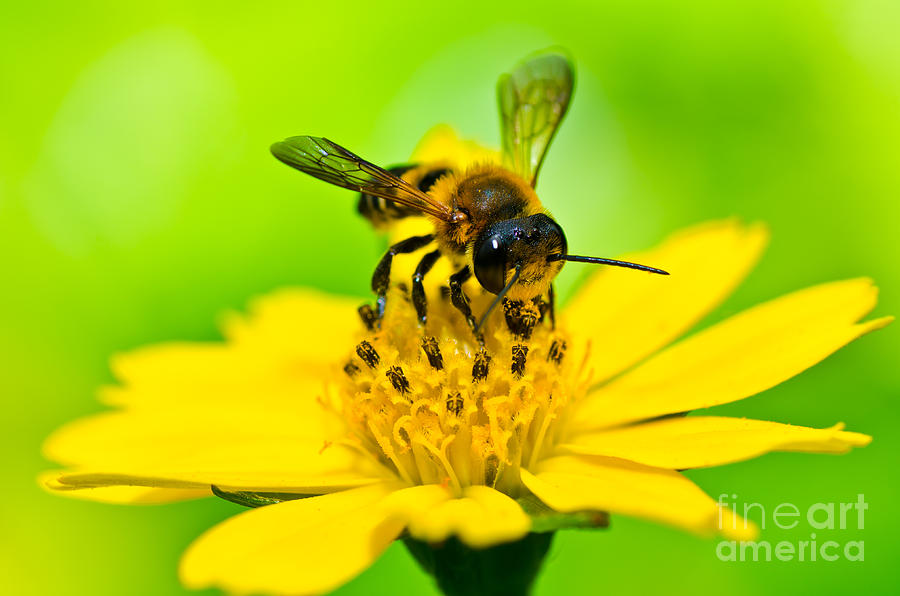Study of roundup weed killer could be linked to deaths of bees.
We have been told for several years that our bee population was declining. Many possible answers were given, but now this one makes sense.
My experience with Round Up happened more than thirty years ago when we were partners in a Christmas Tree farm with my sister and brother-in-law. We planted the trees in February when they were only about a foot tall. In south Georgia, where we lived, the weeds quickly covered them in the spring.
We, like all the farmers, looked for the easiest and least costly manner of ridding our fields of weeds. We could have hired several people to come in with hoes, and they could have chopped out the offending growth as workers used to do in the cotton fields, but labor in today's world is extremely high. We found we could buy a large container of Roundup and spray it on the ground around the trees. It killed the the unwanted greenery without harming the woody stalks of the pines.
We did not understand there was any danger from using this chemical. After all, it wouldn't be on the market if it were dangerous, right? We never considered the runoff into the ponds and into streams. No one told us it was not safe to use. We certainly did not know all the things now known about this weed killer.
I have learned that Roundup contains a chemical, glyphosate, the active ingredient in the herbicide which is believed to cause cancer and has been banned in many countries but not in the USA.
Researchers Nancy Moran, Erick Motta and Kasie Raymann of the University of Texas at Austin suggest their findings are evidence that glyphosate might be contributing to colony collapse disorder, a phenomenon that has been wreaking havoc on honey bees and native bees for more than a decade.
The chemical giant Monsanto created this product, but Bayer has bought out Monsanto, and they say there have been no studies that show glyphosate is harmful to bees which is what the study by the university is proving.
"We need better guidelines for glyphosate use, especially regarding bee exposure, because right now the guidelines assume bees are not harmed by the herbicide," Motta, the graduate student who led the research, said according to the university. "Our study shows that's not true."
I know that environmental organizations have been active in trying to ban this product for many years, but it is hard to go up against these huge corporations and win, especially in the climate we have in Washington now.
Have you used Roundup and did you think it was safe?

Sadly shortcuts like this one will cost us all dearly. Roundup is still used in Australia. I wish it wasn't. And how I wish that before chemicals were released much more extensive studies of their impact was the norm.
ReplyDeleteI agree, EC. It is like so many things today. The manufacturer does the testing and they tell the public what they want us to hear. Our FDA is underfunded and understaffed, I hear, so they just take the manufacturers' word for the safety. The same is true with cosmetics and other household products on the store shelves today. I have learned to be very skeptical of all manufacturers of chemicals these days. Sad that we can't depend on what our tax money is supposed to protect us from.
ReplyDelete